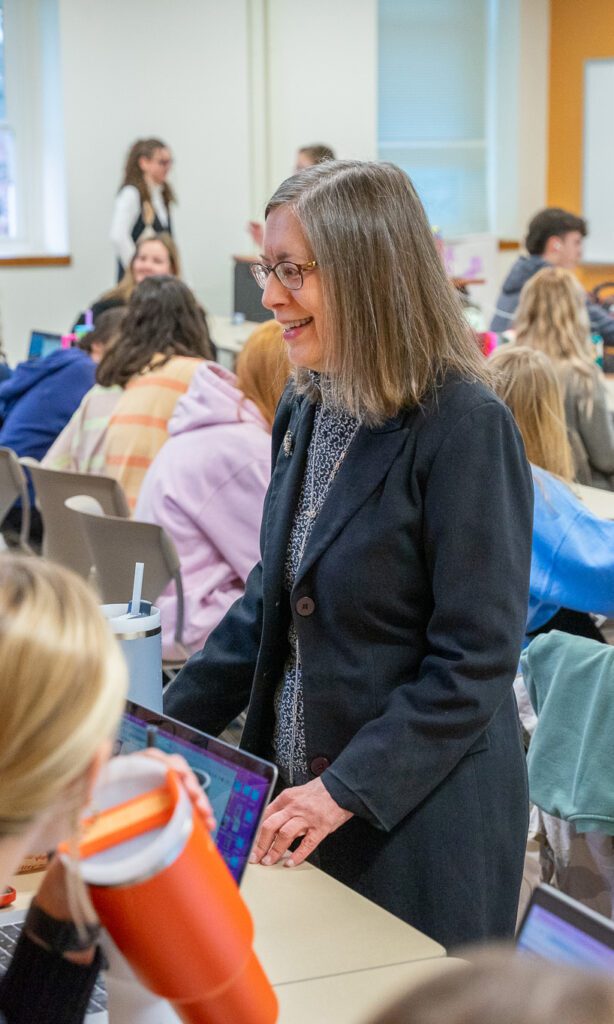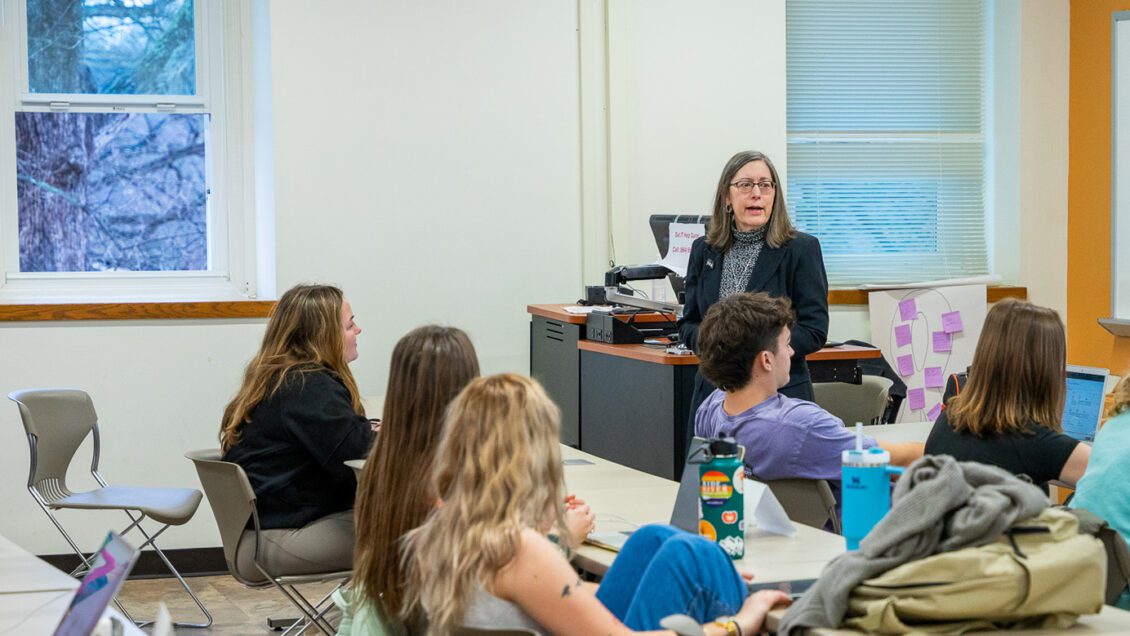Pam Stecker is a professor of special education in the Department of Education and Human Development. While her primary focus is on preparing students for careers in education and giving them the tools to support students with disabilities, she also truly enjoys getting to know students. Stecker truly loves teaching because she can contribute to each student’s professional development.
We caught up with Stecker recently to discuss the many signposts in her early life as a student that pointed to a career in special education, how she uses class simulation to truly prepare students, and what she has found rewarding and challenging in her nearly three-decade career at Clemson.
What is your teaching philosophy?
I prepare students to become teachers, teacher leaders and faculty in the field of special education. Although being passionate about helping others is important, what is most critical in this field is having effective strategies to support students with disabilities to be successful—in academics, social behaviors and functional life skills.
My teaching philosophy and practices center around assisting future educators to develop the knowledge and skillsets that are most likely to accelerate learning among their own students. Consequently, these future educators need to learn how to use evidence-based practices effectively and to understand the research that supports them, which becomes my role to facilitate.
However, we cannot lose sight of the individual. Teaching and learning work best when we get to know our students as individuals, each with their own strengths, needs and goals. We test our instructional practices by examining our students’ responses and altering our instruction when indicated. In this vein, my students also can be inspired to develop and test innovative solutions to the challenges they face in the field.
Why do you love teaching?
It is exciting for me to see so many young people who are passionate about learning effective ways to support individuals with disabilities. I have spent a lot of time in schools over the years as a special educator, supervising student teachers, working with teachers or conducting research, and I understand what a tough job teaching is. It certainly is more complex now than it was when I was a classroom teacher. Seeing this younger generation so interested in pursuing special education is inspiring and gives me hope for a better future.

When did you know that the field of education was for you?
When I repeated my Sunday school lessons to my dolls and stuffed animals! I always loved my teachers, but I was thrust into situations even as a youngster where I helped peers who were struggling. A student with an intellectual disability in my kindergarten class followed me around and wanted me to show her how to do things. She called me “Ham.”
My third-grade teacher asked me to tutor a classmate, and I spent the last few months of sixth grade teaching my own small group of first graders who most likely had learning disabilities. I just seemed destined to become a special educator, and I became interested in how to better support learning when students experienced difficulties.
Name an educator that inspired you to teach.
The educator who most inspired me to teach was my second-grade teacher Miss Tomlinson. I had her the last year before she retired, but she motivated me to want to learn more and help others do the same. She opened the world of books to me. She often talked to me and wanted to know what I thought. I realized then that connecting with students and getting to know them and their interests was an important part of teaching, too. Even now in the last phase of my career, I still think of this teacher and hope that I can have such a positive influence on my students.
Describe an effective approach you use in the classroom.

Providing multiple opportunities for students to present lesson simulations during class remains an important way to give constructive feedback and encouragement. Although I model the instructional strategies that I want my students to learn, expecting preservice teachers to be able to use them in the field effectively without practice and feedback is not realistic. I use the lesson simulations to shape and refine skills, and students benefit from hearing both instructor and peer perspectives. An evidence-based practice that I embed in most of my coursework is the use of academic progress monitoring and how one can make more effective instructional decisions for individuals based on those data.
What is the most rewarding and most challenging aspect of teaching for you?
The most rewarding aspect for me is seeing growth among my students. I love observing preservice educators as they teach a lesson confidently using strategies we have discussed and practiced in class. Even better is when they get excited about their own students’ growth and realize that it is due to their effective instruction. Of course, I enjoy hearing from former students who let us know that they are using strategies they learned while at Clemson. They often appreciate their strong preparation program even more after they graduate and begin working.
The most challenging aspect of teaching for me is trying to embed effective use of technology. It changes so rapidly that I barely learn to do something new before it already has become obsolete!
What do you like about the College of Education?
I really appreciate the feeling of community in both the College of Education and the University. When I first moved to Clemson, I didn’t expect to stay long term. However, I am now in my 28th year at Clemson!
Is there any subject that you devote time to that might surprise people?
Not surprisingly, I am an avid reader. However, some people might not expect that my favorite genre would be detective stories and mysteries. I like trying to figure out the plot and predicting the “whodunit.” I enjoy completing sudoku puzzles, too.
Get in touch and we will connect you with the author or another expert.
Or email us at news@clemson.edu

